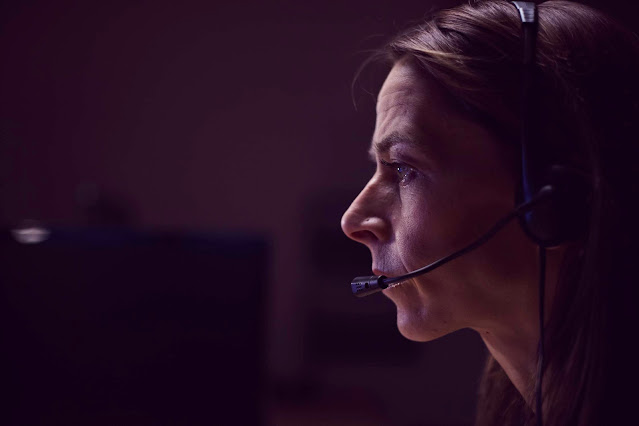Echo - Analysis
Cinematography
The opening sequence positions us as a member of the crowd, watching Caroline appear and see her performance as if we where there - and we believe it. The camera is hand-held and often mobile, and could be described as a POV shot from a crowd member. Then to focus on Lauren Carse's performance, a low depth of field is used with a close up. This style of shot is used frequently in this film, whenever Caroline is faking her phone calls, and in moments of strong emotion. This close up focuses on the performances and allows us to empathise strongly with Caroline.
Editing
During Caroline's calls, the camera cuts quickly, with frequent jump cuts, to create a sense of panic. The film also shows very similar sequences twice, but they are re-contextualised with the knowledge we have learnt since. This feeds into a theme of the film, that being that bystanders never know the full story.
Sound
The opening sequence features only diegetic sound, creating a strong sense of verisimilitude and cementing the audience member as a bystander. It makes the scene feel raw and real, rather than a scene from a soap opera. The only moments that feature non-diegetic sound are the ones where Caroline is alone, such as when she is smoking outside on her porch or when she is sitting alone in a cafe. The sombre score creates a melancholy feel to these moments, emphasising Caroline's loneliness after the loss of her dad.


Comments
Post a Comment